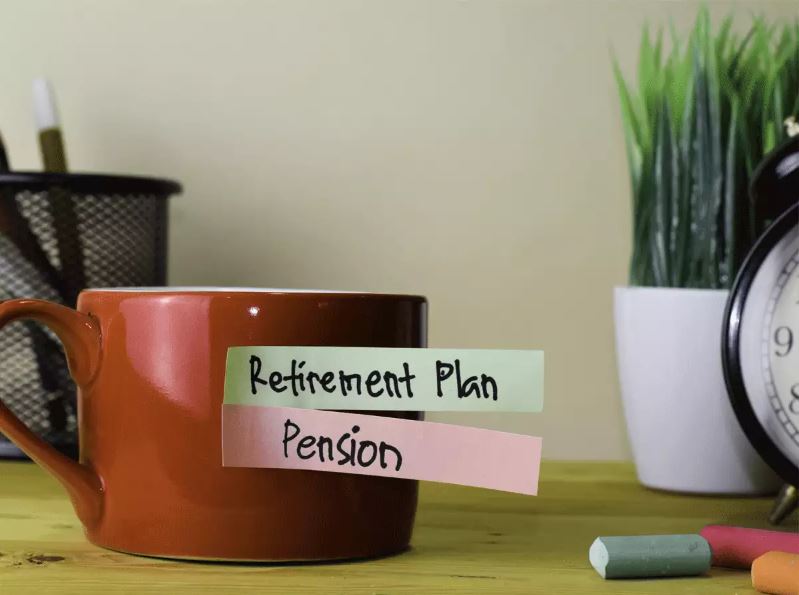Before anyone begins crunching the figures on their retirement objectives, they must first determine how much money they will need to save. Naturally, this will be determined by a variety of situational considerations, such as their annual salary and the age at which they intend to retire.
While there is no hard and fast rule for how much money to save, many retirement planner recommend accumulating roughly $1 million, or 12 years of one’s pre-retirement annual salary. Others advocate the 4% rule, which states that old folks should spend no more than 4% of their retirement funds every year to ensure a pleasant retirement.
Because everyone’s circumstances are unique, it’s important to take the time to evaluate the appropriate retirement savings for your own position. Undoubtedly, you’ll need to employ good retirement planning strategies to achieve any financial retirement plan.
What Should You Have in Mind?
As you begin to approach retirement, consider some of the aspects that will influence your retirement aspirations. For instance, what are your family’s plans? For many people, starting a family is a major life goal, yet raising children can deplete your savings quickly. As a result, the type of family you expect to have will influence your retirement planning.
Similarly, you should get a retirement planner to consider your retirement plans, including any changes to your home or residence. While traveling during retirement can be a fascinating adventure, extensive travel will deplete your retirement resources faster than staying at home.

Moving to a country with an extraordinarily low cost of living, on the other hand, may allow you to stretch your savings while maintaining a high level of life. And if it is also a city life that you prefer, it’s also okay. Have you considered moving to some quiet and calm places in Sydney? That is a good choice, and an effective retirement planner in Sydney is all you need to realize this plan. You can reach out to us today!
Finally, one should think about the various sorts of tax-advantaged retirement accounts. Most Americans are eligible for social security, but the payments are rarely sufficient to cover all of their retirement needs.
While pension funds were previously the norm for trained workers, self-funded plans such as IRA accounts have essentially replaced them. Because these have a contribution limit, your retirement approach will be determined by the types of tax-advantaged accounts that are accessible to you.
What Should I Set Aside for Retirement?
One rule of thumb is to save 15% of your annual gross earnings. In an ideal world, saving would begin in your twenties and continue throughout your working years.
However, saving isn’t just enough. As you know, times change, and so do inflation levels and monetary value. Therefore, you’ll need an established retirement planner to help you save and invest your money according to your risk tolerance level.
In addition, there’s no fixed amount that would be sufficient for retirement. Your retirement finance planning should cover all the things your intended activities and lifestyle during retirement, all of which you should discuss with a retirement planner.
Tips for a Successful Retirement Planning
Here are a few tips that would facilitate a successful retirement plan;
First, you should divide your retirement planning strategy into several components. Suppose a parent wants to retire in two years, pay for a child’s education when they reach the age of 18, and relocate to Melbourne.
From the standpoint of developing a retirement plan, the investing approach would be divided into three time periods: two years until retirement (contributions are still paid to the plan), saving for and paying for college, and living in Melbourne (regular withdrawals to cover living expenses).
To identify the best allocation approach, a multistage retirement plan must consider numerous time horizons as well as the accompanying liquidity demands. You should also rebalance your portfolio as your time horizon shifts.

You may not believe that saving a few dollars here and there in your twenties is not really significant, but the force of compounding will make it much more valuable by the time you need it.
Secondly, retirement planning strategies can be improved by specifying and estimating early retirement activities, accounting for unexpected expenses in middle retirement, and forecasting what-if late-retirement medical might costs.
Thirdly, the ratio should be closer to 100% in order for retirees to have enough funds for retirement. That is because, every year, the cost of living rises, particularly healthcare costs. People are living longer lives and wish to thrive in their golden years. Retirees require higher income for a longer period of time; thus, they must save and invest properly.
Finally, Markets will go through extended cycles of up and down, if you’re investing money you won’t need to touch for 40 years, you can afford to see your portfolio value rise and fall with those cycles.
While this may become a cause for undue panicking in some, your retirement planner will be there to assure you of the positivity behind every rise and fall. So, when the market falls, buy rather than sell. Refuse to succumb to terror. You’d want to buy clothes if they were at a 20% discount, right? Why not equities if they were 20% off?
If you use a retirement planning calculator, it will reveal your greatest asset– time. Depending on how much time you have at your disposal, you can adjust your risk tolerance level according to the advice of your retirement planner to reap the greatest benefits.
FAQs
What Exactly Is Risk Tolerance?
Risk tolerance is the amount of loss you are willing to accept in your portfolio. Risk tolerance is determined by a variety of criteria, including your financial objectives, income, and age.
What Is the Age of Early Retirement?
Early retirement is usually assumed to be at the age of 65. When it comes to Social Security, you can begin receiving benefits as early as age 62. However, you will not obtain the full advantages if you wait until the full retirement age.
Conclusion
Individuals are bearing a greater share of the burden of retirement preparation than ever before. Few employees, particularly in the private sector, can rely on an employer-provided defined-benefit pension. The transition to defined-contribution plans, such as IRA, also implies that investment management becomes your job rather than your employer’s.
However, this job may be overwhelming, especially if you lack the time and basic skills. Therefore, why not let us take off the burden? Contact Omura Wealth Adviser today, and let’s pair you with an effective retirement planner and begin your journey today!
Other recourses:
Different types of outdoor tiles and their price ranges
Effective ways to clean your outdoor tiles or pool tiles

